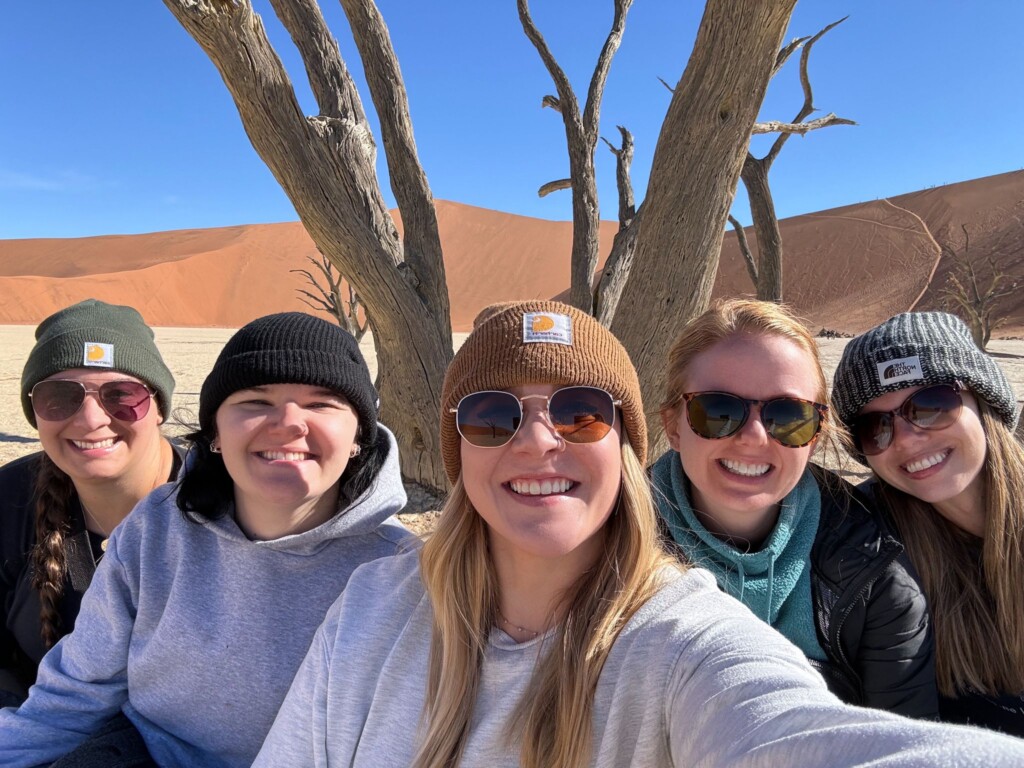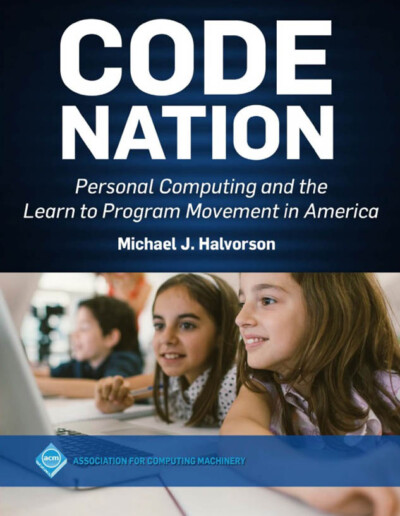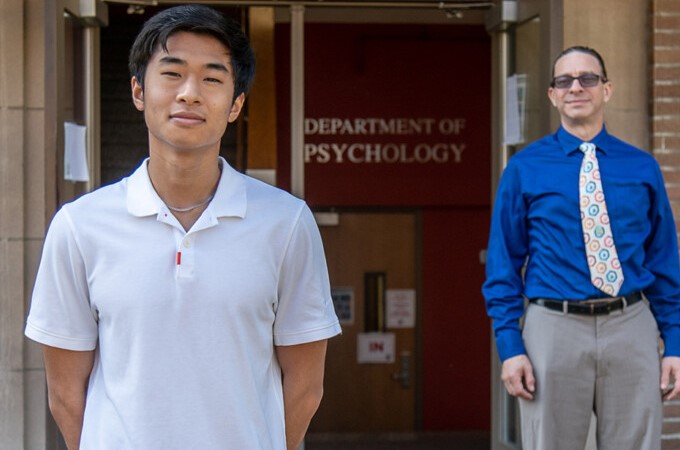Page 12 • (634 results in 0.024 seconds)
-

At a summer 2023 banquet launching the Uukumwe Project, Sanet Steenkamp, executive director of Namibia’s Ministry of Education, Arts, and Culture, advised a group of Namibian and American teachers not to hold back. “The children,” she said, “deserve for us not to hold back.” Steenkamp’s…
Collective Action Rooted in Reciprocity The Uukumwe Project continues to inspire teacher development Posted by: oharasm / October 23, 2024 Image: The PLU Uukumwe team at Sosusvlei October 23, 2024 By by Emily Holt, MFA ’16PLU Marketing and Communications Guest WriterAt a summer 2023 banquet launching the Uukumwe Project, Sanet Steenkamp, executive director of Namibia’s Ministry of Education, Arts, and Culture, advised a group of Namibian and American teachers not to hold back. “The children
-
Our Town , kicks off the Theater season at PLU later this month. The play, directed by new PLU faculty member, Lori Lee Wallace, was first produced in 1938 and since has become an American classic. The play reveals the ordinary lives of the people…
“Our Town” opens later this month Posted by: Mandi LeCompte / October 1, 2012 October 1, 2012 Our Town, kicks off the Theater season at PLU later this month. The play, directed by new PLU faculty member, Lori Lee Wallace, was first produced in 1938 and since has become an American classic. The play reveals the ordinary lives of the people in the small town of Grover’s Corners, New Hampshire. Our Town defies most conventional theatrical genres: it is neither a comedy nor a tragedy, neither a
-

Can learning to code be described as a social movement in American history? PLU Professor Michael Halvorson thinks so. His reflections on the subject were recorded as part of PLU’s Homecoming and Family Week, which presented several lectures by the PLU faculty for the Lute…
Halvorson Delivers Homecoming Lecture on Programming and Social Movements View a recording of the October 6 webinar created for the PLU community Posted by: halvormj / September 30, 2020 September 30, 2020 Can learning to code be described as a social movement in American history? PLU Professor Michael Halvorson thinks so. His reflections on the subject were recorded as part of PLU’s Homecoming and Family Week, which presented several lectures by the PLU faculty for the Lute community. The
-
In honor of Women’s History Month, we are “commemorating and encouraging the study, observance and celebration of the vital role of women in American history.” ( https://www.womenshistorymonth.gov/ ). This exhibit includes a short list of just a few women’s first achievements in the past six…
On Exhibit: Women’s History Month Posted by: Holly Senn / March 9, 2022 March 9, 2022 In honor of Women’s History Month, we are “commemorating and encouraging the study, observance and celebration of the vital role of women in American history.” (https://www.womenshistorymonth.gov/). This exhibit includes a short list of just a few women’s first achievements in the past six years, from 2017 to 2022, and print biographies about women from the Mortvedt Library collection. While there are many
-
Through grant funding from the Indian Health Service’s Indians Into Medicine Program (INMED) and the Empire Health Foundation, the WSU Elson S. Floyd College of Medicine has opportunities for American Indian and Alaska Native (AIAN) to participate in pathway programs. Deadline to apply: April 7,…
Reimagine Indians into Medicine (RISE) Summer Academy 2023 Posted by: nicolacs / February 28, 2023 February 28, 2023 Through grant funding from the Indian Health Service’s Indians Into Medicine Program (INMED) and the Empire Health Foundation, the WSU Elson S. Floyd College of Medicine has opportunities for American Indian and Alaska Native (AIAN) to participate in pathway programs. Deadline to apply: April 7, 2023 by 5:00 p.m. Pacific Standard Time. The RISE Summer Academy, a 6-week program
-
Dr. Bridget Yaden, professor of Hispanic and Latino Studies at Pacific Lutheran University, served as the President of the American Council on the Teaching of Foreign Languages (ACTFL) for the very eventful year of 2020. ACTFL is a national organization of language teachers, with a…
Encouraging Biliteracy Through Online Learning Posted by: dupontak / May 13, 2021 May 13, 2021 By Camilla SumnerDr. Bridget Yaden, professor of Hispanic and Latino Studies at Pacific Lutheran University, served as the President of the American Council on the Teaching of Foreign Languages (ACTFL) for the very eventful year of 2020.ACTFL is a national organization of language teachers, with a membership of more than 13,000 language educators and administrators from elementary through graduate
-

Ricky Haneda ’22, a Japanese international student, share his experience at an American international school in Japan, how he decided to attend PLU, and how PLU has shaped his path toward a psychology major and a career in mental health and wellness. YouTube Link
Ricky Haneda ’22 | Psychology Major Posted by: tpotts / February 18, 2022 February 18, 2022 Ricky Haneda ’22, a Japanese international student, share his experience at an American international school in Japan, how he decided to attend PLU, and how PLU has shaped his path toward a psychology major and a career in mental health and wellness. YouTube Link Read Previous The Evolution of Behavior LATEST POSTS The Evolution of Behavior November 12, 2021 Dr. Laura Shneidman awarded research grant
-

By Michael Halvorson ’85, Professor of History. When Dwight D. Eisenhower was a young officer in the U.S. Army, he was responsible for protecting his troops during the 1918 Pandemic that threatened military bases in the U.S. This is one of the fascinating stories about…
graduate from the Department of History at Pacific Lutheran College (PLC), the year before the institution was reorganized as Pacific Lutheran University. Holl spent many years as a professor of history at Kansas State University, specializing in Eisenhower’s life and era. His new book is entitled Dwight D. Eisenhower’s Religious Journey: Duty, God and Country, soon to be published by Wm. B. Eerdmans Publishing Co. Holl received special permission to publish an extract from the book on our website, due
-

PLU officials recently announced the launch of a new data science major, which will commence this fall semester. This strategic addition responds to the escalating interest among undergraduates in coursework dedicated to data science and analytics. The highly collaborative mathematics and computer science departments will…
tackle real-world challenges. The data science program will provide students with essential analytical tools and techniques for extracting meaningful and precise insights from data. “In this era of data ubiquity, there is a high demand for graduates who major in data science,” said program director and assistant professor Jeff Caley. “Our program equips students with robust technical skills while also fostering a commitment to ethics, social responsibility, and conscientious practice.” The program’s
-

By Zach Powers PLU Marketing & Communications TACOMA, Wash. (Dec. 8, 2014)—On Wednesday, Dec. 3, Pacific Lutheran University students, staff and faculty gathered in the Anderson University Center for the latest installment of Sex +, a yearlong campus series addressing the growing need for positive…
somebody who has to prove something or demonstrate something. There is an assumption that somebody is right and somebody is wrong and somebody has to make the case… Under “no means no,” consent is assumed. The burden of saying there was not consent is on the person who is making the (sexual assault) accusation. The passing of “yes means yes” in California is a groundbreaking step, but Sill reminded the audience that “no means no” was perhaps even more revolutionary when it was originally introduced
Do you have any feedback for us? If so, feel free to use our Feedback Form.


